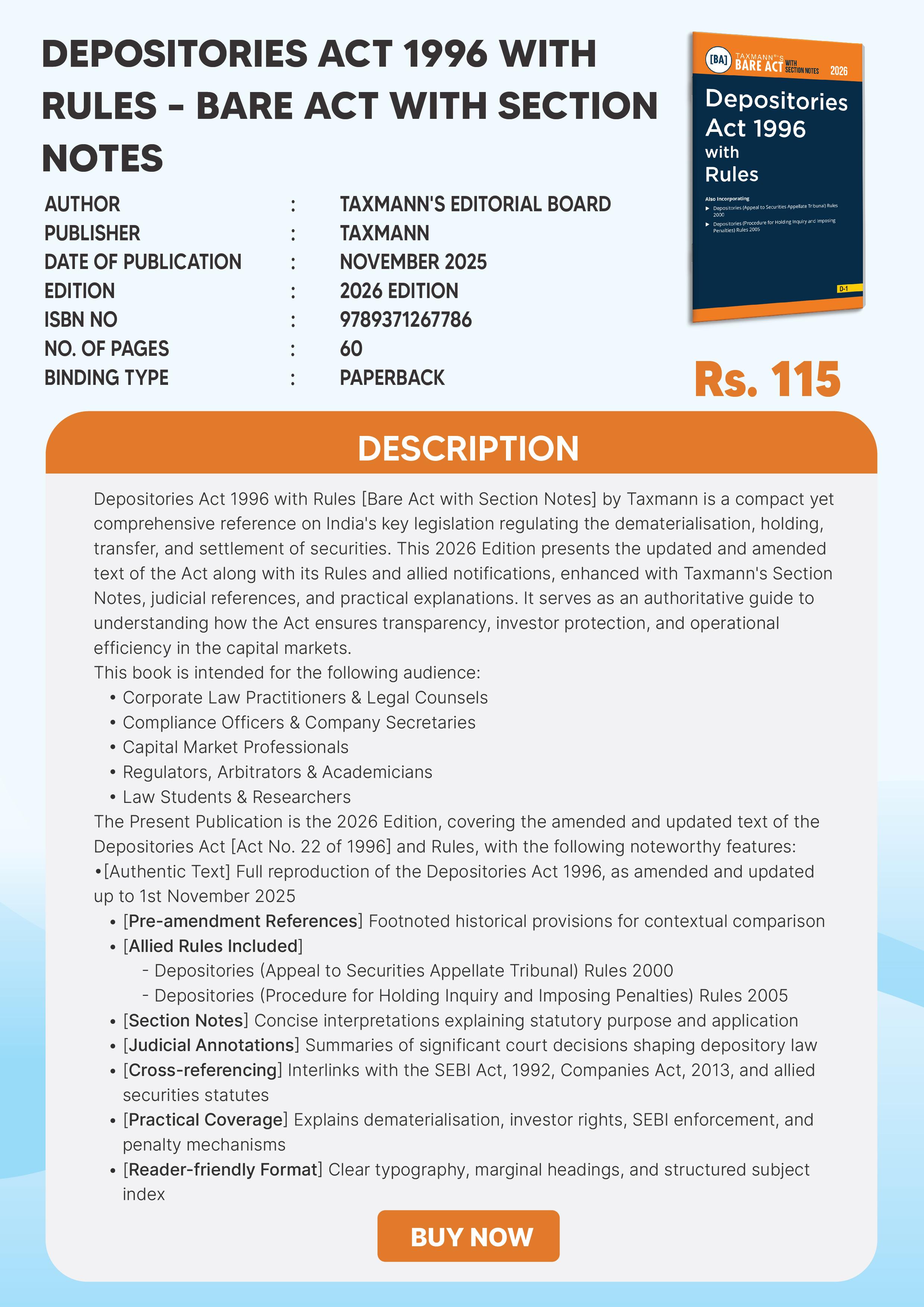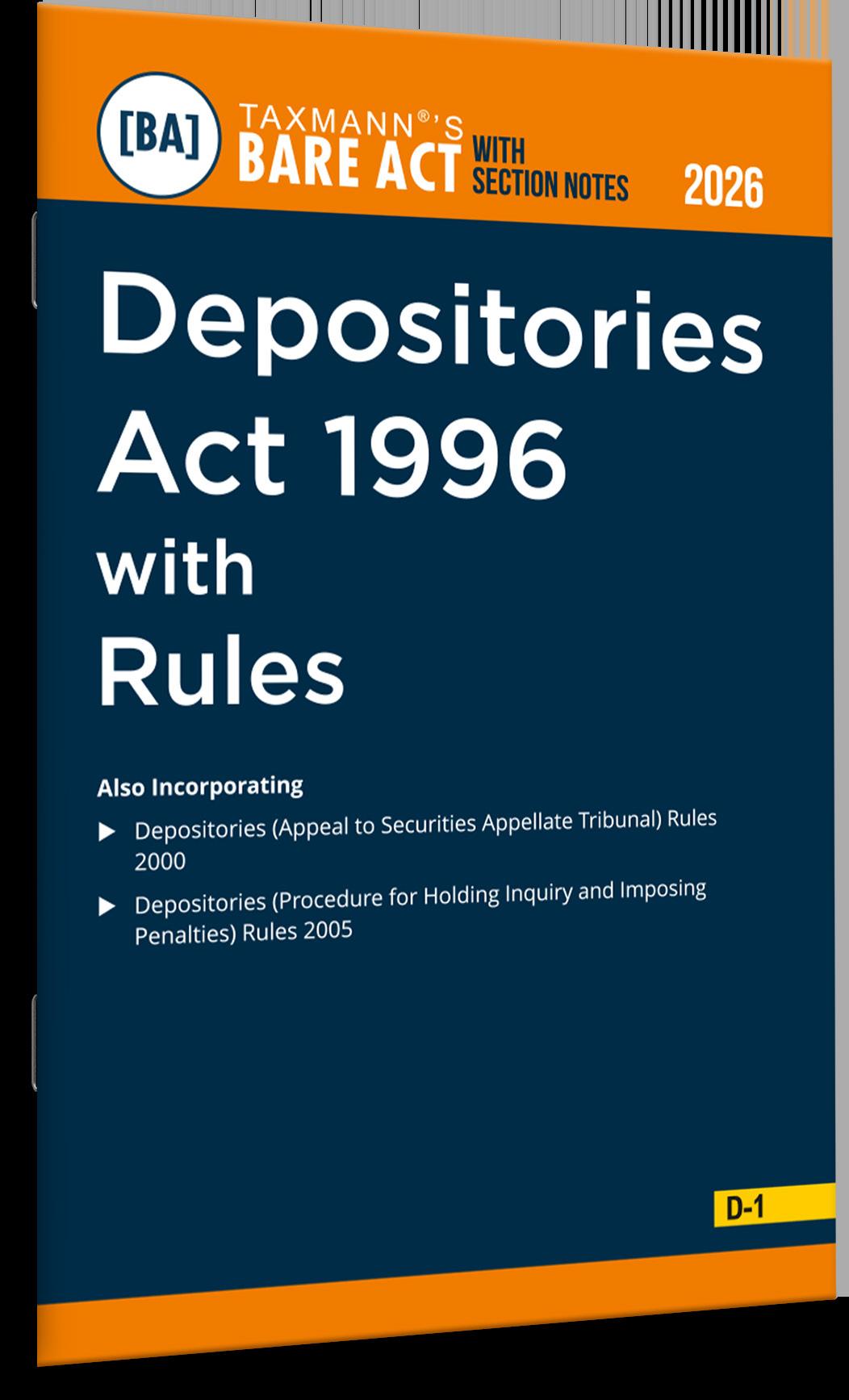Act applies to whole of India - Parliament can enact Legislation territorial aspects of certain events - Union of India v. Mohit Minerals 10 SCC 700 = 138 taxmann.com 331 = 92 GST 101 = 61 GSTL 257 (SC 3 member bench).
See Territorial Waters, Continental Shelf, Exclusive Economic Zone Zone Act, 1976.
Definitions.
2. In this Act, unless the context otherwise requires,— 2a[(1) “adjudicating authority” means any authority competent order or decision under this Act, but does not include missioner (Appeals)] or Appellate Tribunal;
Inserted by the Finance Act, 2018, w.e.f. 29-3-2018.
Notification No. G.S.R. 155(E), dated Substituted by the Finance (No. 2) Act, 1980, w.e.f. 11-10-1982. Substituted for “Collector (Appeals)” by the Finance Act, 1995, w.e.f.
1
with regard to extraMinerals (P.) Ltd. [. [2022] (SC 3 member bench) and other Maritime competent to pass any the Board, 3[Com23-1-1963. 26-5-1995.
© Taxmann Price : ` 115
Law stated in this book is as updated till 1st November, 2025
Published by :
Taxmann Publications (P.) Ltd.
Sales & Marketing : 59/32, New Rohtak Road, New Delhi-110 005 India
Phone : +91-11-45562222
Website : www.taxmann.com
E-mail : sales@taxmann.com
Regd. Office : 21/35, West Punjabi Bagh, New Delhi-110 026 India
Printed at :
Tan Prints (India) Pvt. Ltd.
44 Km. Mile Stone, National Highway, Rohtak Road Village Rohad, Distt. Jhajjar (Haryana) India
E-mail : sales@tanprints.com
Disclaimer
Every effort has been made to avoid errors or omissions in this publication. In spite of this, errors may creep in. Any mistake, error or discrepancy noted may be brought to our notice which shall be taken care of in the next edition. It is notified that neither the publisher nor the author or seller will be responsible for any damage or loss of action to any one, of any kind, in any manner, therefrom. It is suggested that to avoid any doubt the reader should cross-check all the facts, law and contents of the publication with original Government publication or notifications.
No part of this book may be reproduced or copied in any form or by any means [graphic, electronic or mechanical, including photocopying, recording, taping, or information retrieval systems] or reproduced on any disc, tape, perforated media or other information storage device, etc., without the written permission of the publishers. Breach of this condition is liable for legal action.
For binding mistake, misprints or for missing pages, etc., the publisher’s liability is limited to replacement within seven days of purchase by similar edition. All expenses in this connection are to be borne by the purchaser. All disputes are subject to Delhi jurisdiction only.
Depositories Act, 1996
[22 OF 1996]*
An Act to provide for regulation of depositories in securities and for matters connected therewith or incidental thereto.
BE it enacted by Parliament in the Forty-seventh Year of the Republic of India as follows:—
CHAPTER I PRELIMINARY
Short title, extent and commencement.
1. (1) This Act may be called the Depositories Act, 1996.
(2) It extends to the whole of India.
(3) It shall be deemed to have come into force on the 20th day of September, 1995. De nitions.
2. (1) In this Act, unless the context otherwise requires,—
(a) “bene cial owner” means a person whose name is recorded as such with a depository;
(
b) “Board” means the Securities and Exchange Board of India established under section 3 of the Securities and Exchange Board of India Act, 1992 (15 of 1992);
(
c) “bye-laws” means bye-laws made by a depository under section 26;
(d) “Company Law Board” means the Board of Company Law Administration constituted under section 10E of the Companies Act, 1956 (1 of 1956);
(e) “depository” means a company formed and registered under the Companies Act, 1956 (1 of 1956), and which has been granted a certi cate of registration under sub-section (1A) of section 12 of the Securities and Exchange Board of India Act, 1992 (15 of 1992);
(f) “issuer” means any person making an issue of securities;
(g) “participant” means a person registered as such under sub-section (1A) of section 12 of the Securities and Exchange Board of India Act, 1992 (15 of 1992);
(
h) “prescribed” means prescribed by rules made under this Act;
*Dated 10-8-1996.
(i) “record” includes the records maintained in the form of books or stored in a computer or in such other form as may be determined by regulations;
(j) “registered owner” means a depository whose name is entered as such in the register of the issuer;
(k) “regulations” means the regulations made by the Board;
1[(ka) “Securities Appellate Tribunal” means a Securities Appellate Tribunal established under sub-section (1) of section 15K of the Securities and Exchange Board of India Act, 1992 (15 of 1992);]
(l) “security” means such security as may be speci ed by the Board;
(m) “service” means any service connected with recording of allotment of securities or transfer of ownership of securities in the record of a depository.
(2) Words and expressions used herein and not de ned but de ned in the Companies Act, 1956 (1 of 1956), or the Securities Contracts (Regulation) Act, 1956 (42 of 1956), or the Securities and Exchange Board of India Act, 1992 (15 of 1992), shall have the meanings respectively assigned to them in those Acts.
COMMENTS
SECTION NOTES
2.1 Bene cial owner [Section 2(1)(a)]
“Bene cial owner” means a person whose name is recorded as such with a depository in its Register of Bene cial Owners. [See Sections 6 and 11]
2.2 Board [Section 2(1)(b)
“Board” means the Securities Exchange Board of India (SEBI) [See Section 3 of the Securities Exchange Board of India Act, 1992]
2.3 Bye laws [Section 2(1)(c)]
“Bye-laws” means bye-laws made by a depository under section 26.
2.4 Depository [Section 2(1)(e)]
The de nition of “Depository” in Section 2(1)(e) does not tell us what exactly a depository is or what it does. It merely tells us that it is a company formed and registered in India under the Companies Act, 2013 which has been granted a Certi cate of Registration (CoR) by SEBI under section 12(1A) of the SEBI Act, 1992. The depository-company must not only register with SEBI but also obtain a certi cate of commencement of business with SEBI before acting as a depository [See Section 3].
A depository is an entity that holds securities (shares, bonds, mutual funds, etc.) in an electronic or dematerialized form and facilitates their smooth transfer between buyers and sellers. The depository eliminates the risks associated with physical securities (scrips) such as theft, forgery, and mutilation. In India, the depository system follows dematerialization, meaning that securities exist only as electronic records. [https://investor.sebi.gov.in/depositories.html]
Different Parties Involved in the Depository System
Depositories work within a network of intermediaries that help facilitate smooth transactions in the securities market. S. 2 DEPOSITORIES ACT, 1996 2
1. Inserted by the Securities Laws (Second Amendment) Act, 1999, w.e.f. 16-12-1999.
1. Depositories (NSDL & CDSL)
Maintain securities in electronic form and ensure secure transactions.
2. Depository Participants (DPs)
Intermediaries between depositories and investors (e.g., banks, stockbrokers)
DPs handle account opening, securities transfer, pledging, and grievance redressal.
3. Clearing Corporations
Ensure settlement of trades in stock exchanges.
Work with depositories to transfer securities from sellers to buyers.
4. Issuers (Companies)
Companies issue shares, bonds, and mutual funds that get stored in electronic form with depositories.
5. Registrars and Transfer Agents (RTAs)
Handle corporate actions like dividend distribution and share allotment.
2.5 Issuer [Section 2(1)(f)]
“Issuer” means any person making an issue of securities.
In simple terms, issuers are companies issuing shares, bonds, and mutual funds that get stored in electronic form (dematerialised form or demat form) with depositories.
2.6 Participant [Section 2(1)(g)]
Participants are also referred to as Depository Participants (DPs). DPs are Intermediaries between depositories and investors (e.g., banks, stockbrokers). DPs handle account opening, securities transfer, pledging, and grievance redressal.
“Participant” means a person registered as such under sub-section (1A) of section 12 of the Securities and Exchange Board of India Act, 1992.
2.7 Registered owner [Section 2(1)(j)]
“Registered owner” means a depository whose name is entered as such in the register of the issuer.
CASE LAWS
Definition of beneficial owner – Scope and legal standing - The petitioner challenged the transfer of shares by the company and its refusal to recognize him as a shareholder, despite his name appearing in the records of the depository participant. The pivotal legal issue was the interpretation of the term “beneficial owner” as defined under section 2(1)(a) of the Depositories Act, 1996, which refers to a person whose name is recorded with a depository as the owner of the securities for the purpose of the Act. The petitioner contended that once shares are held in demat form and his name is registered as a beneficial owner with the depository, the company is bound to acknowledge him as the rightful shareholder with all attached rights. The Bombay High Court examined the statutory framework and held that the depository system under the Act creates a legal demarcation between the registered owner (depository) and the beneficial owner (investor), and the rights of ownership lie with the beneficial owner as defined. Therefore, the refusal of the company to recognize such ownership was contrary to the statutory scheme. The Court concluded that a person recorded as a beneficial owner with the depository enjoys full ownership rights against the issuer and is entitled to seek legal remedy against any denial of such rights – Jayanand Jayant Salgaonkar v. Jayashree Jayant Salgaonkar AIR 2015 BOMBAY 296.








